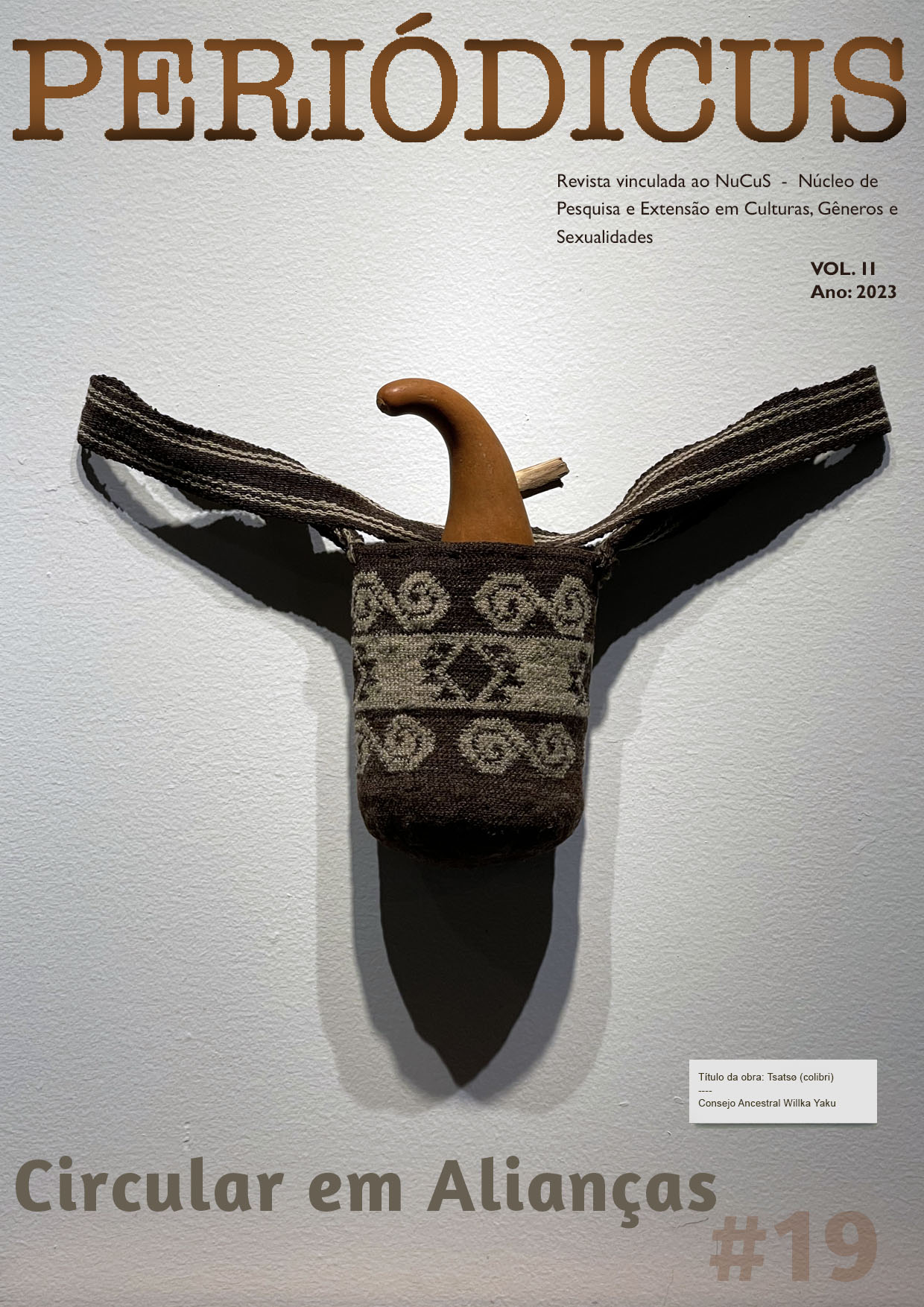Subaltern masculinities
an ethnobiography with African immigrants in Brazil
DOI:
https://doi.org/10.9771/peri.v2i19.55016Abstract
The article analyses masculinities of African men in the scenario of migration and diaspora in the city of Fortaleza. What is it to be a man, black, African and immigrant in Brazil? The reflection is based on ethnographic research and interviews with Africans of different nationalities, combined with the author's biographical experiences, configuring an ethnobiography. The notions of hegemonic and subaltern masculinities are moved. African men are racialized, discriminated, and sexualized, occupying a secondary place in society. They are made visible by the imaginary of the colonial past. The university and precarious work constitute means of insertion. The migratory context allows the construction of images of male virility between Africa and Brazil. They present subaltern masculinities in front of Brazilian society and hegemonic in front of African women, valued by Brazilian women. The interactions reveal negotiations, in the midst of colonial sexual representations, marked by racial and cultural tensions. The living and experience in the diaspora shape new patterns of masculinity, which challenge gender relations and domination and, to rethink the formulations of man as executioner and woman as victim.
Downloads
Downloads
Published
How to Cite
Issue
Section
License
Copyright (c) 2023 Ercilio Neves Brandão Langa

This work is licensed under a Creative Commons Attribution-NonCommercial 4.0 International License.
Autores que publicam nesta revista concordam com os seguintes termos:
Autores mantêm os direitos autorais e concedem à revista o direito de primeira publicação, com o trabalho simultaneamente licenciado sob Licença Creative Commons Attribution Noncommercial que permite o compartilhamento do trabalho com reconhecimento da autoria e publicação inicial nesta revista, sendo vedado o uso com fins comerciais.
Autores têm autorização para assumir contratos adicionais separadamente, para distribuição não-exclusiva da versão do trabalho publicada nesta revista (ex.: publicar em repositório institucional ou como capítulo de livro), com reconhecimento de autoria e publicação inicial nesta revista.
Autores têm permissão e são estimulados a publicar e distribuir seu trabalho online (ex.: em repositórios institucionais ou na sua página pessoal) a qualquer ponto antes ou durante o processo editorial, já que isso pode gerar alterações produtivas, bem como aumentar o impacto e a citação do trabalho publicado (Veja O Efeito do Acesso Livre).







